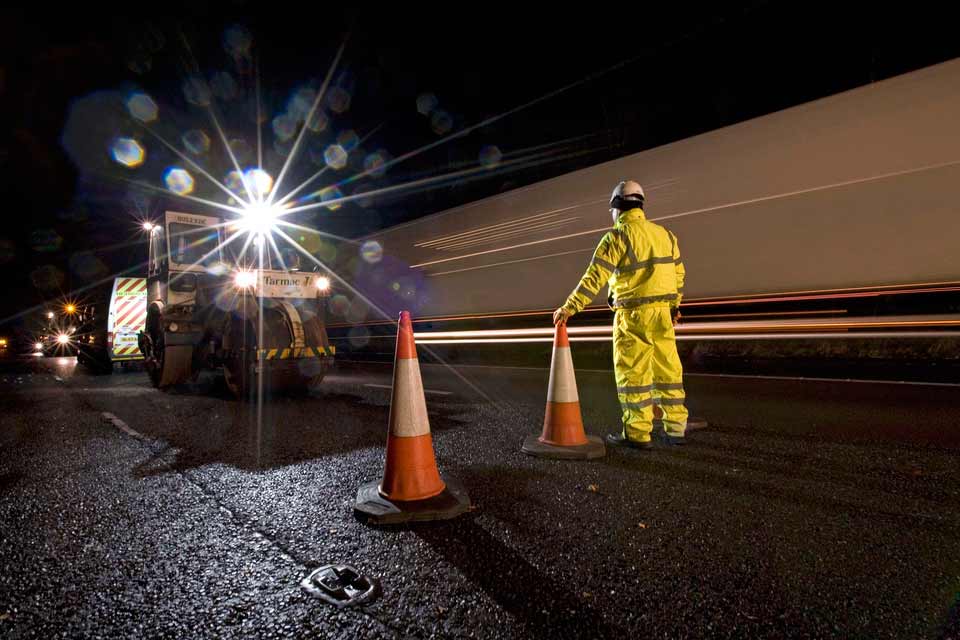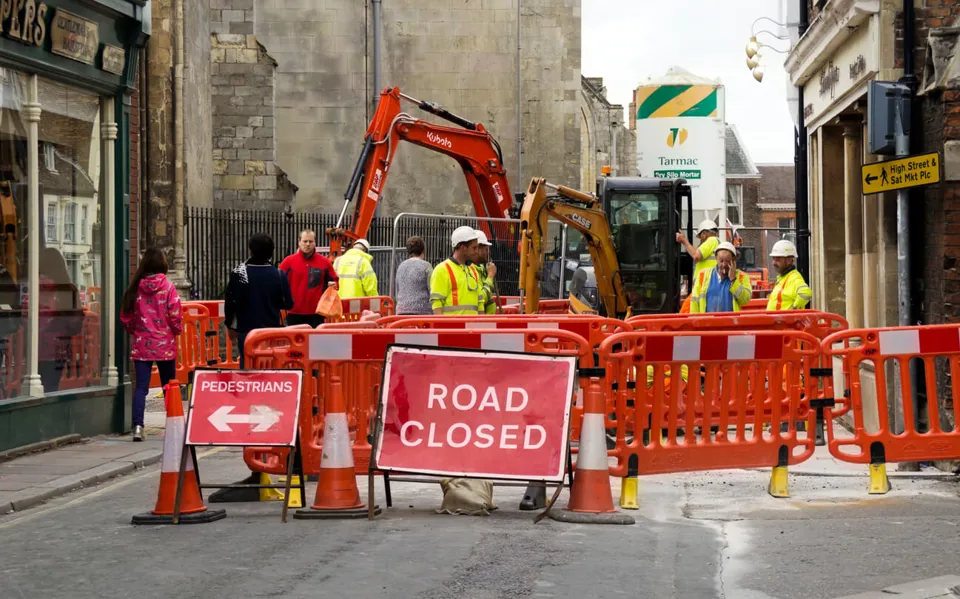The Government has published new proposals to increase fines handed out to utility companies for street works that overrun.
With fines currently only issued for disruption on working days, ministers want to extend the £10,000 per day fine into weekends and bank holidays to deter disruption when roads are at their busiest.
They also want fines to double, from £500 up to a maximum of £1,000, for companies who breach conditions of the job, such as working without a permit.
The measures, announced to coincide with National Pothole Day (Monday, January 15), are set out in a street works consultation launched by roads minister Guy Opperman.
“Too often traffic jams are caused by overrunning street works,” he said. “This Government is backing drivers, with a robust approach to utility companies and others, who dig up our streets.”
The plans include a proposal to allocate 50% of the money received from lane rental schemes to be used to improve roads and repair potholes.
Lane rental schemes allow local highway authorities to charge companies for the time that street and road works occupy the road.
The Department for Transport (DfT) estimates that the measures could generate up to an additional £100 million for road repairs over the next 10 years.

In November, the Government announced what it described as the biggest ever funding uplift for local road improvements with £8.3 billion of redirected HS2 funding - enough to resurface more 5,000 miles of roads.
The Asphalt Industry Alliance (AIA) has previously reported that, while half (51%) of local roads are in good structural condition, the remainder - more than 100,000 miles - could continue to deteriorate to the point of needing to be rebuilt within the next 15 years, without appropriate maintenance measures.
The consultation is part of a series of measures from the Government’s Plan for Drivers, a 30-point plan to support people’s freedoms to use their cars, curb “over-zealous” enforcement measures and back drivers.
Transport secretary Mark Harper said: “After investing an extra £8.3bn to resurface roads across England, the largest ever increase in funding for local road improvements, this Government continues to back drivers with these new measures from our Plan for Drivers.
“Our new proposals seek to free up our roads from overrunning street works, cut down traffic jams and generate up to £100m extra to resurface roads up and down the country.”
The DfT says that, while it’s essential that gas, water and other utility companies carry out vital maintenance work to provide the services people rely on, the two million street works carried out in England (2022/2023) have cost the economy around £4bn by causing severe road congestion and disrupting journeys.
“Overrunning roadworks and poorly re-instated roads from utilities companies frustrate drivers,” Edmund King, the AA
The Government introduced a performance-based ‘street works regime’ last year, to make utility companies resurface roads to the best possible standard, and new lane rental schemes where utility companies can be charged up to £2,500 per day for street works.
The AA’s president, Edmund King, said: “Overrunning roadworks and poorly re-instated roads from utilities companies frustrate drivers, cause unnecessary congestion, and trench defects can damage vehicles and injure those on two-wheels.
“We are pleased that the Government is looking to extend the fines for over-running street works, invest more of the surplus fines in roads and ensure that those who dig up the roads repair them to a high and timely standard.”
In addition, the Government plans to make all temporary, experimental or permanent restrictions on traffic digital.
The so-called ‘Traffic Regulation Orders’ (TROs) include things like the location of parking spaces, road closures and speed limits.
Making them digital mean they must now be added to satnav systems, ensuring drivers have the most up-to-date information.
RAC head of policy Simon Williams said: “Drivers shouldn’t have to put up with temporary roadworks for any longer than is necessary, so we’re pleased to see the Government is looking to do more to guarantee that utility companies minimise disruption by carrying out roadworks as quickly and efficiently as possible.
“They should also leave roads in better condition than they found them, which unfortunately is hardly ever the case at the moment.”
Clive Bairsto, chief executive of Street Works UK, stressed that utilities perform a vital role in connecting households, working to the highest standards, while complying with rigorous inspections to ensure works are high quality and lasting.
He added: "We look forward to engaging constructively with Government throughout this consultation, representing our members and the wider industry, to ensure both utilities and local authorities can deliver infrastructure works whilst giving customers and road users the speed of delivery, lack of congestion, and transparency they expect.”





















Login to comment
Comments
No comments have been made yet.